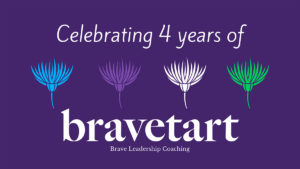Let’s start with coaching, the relationship between coach and coachee is simplest explained as a partnership where both parties work towards an agreed outcome for the benefit of the coachee. There are several distinctions of coaching, each working towards a main objective, some examples are:
Executive
Leadership
Finance
Business
Life
Health
In some cases, the coaching supports an individual to achieve their personal goals e.g. ambitions, relationships, work-life balance, finances, happiness. They may have specific goals such as promotion, business growth, financial independence and there are often underpinning characteristics between their businesses and personal life.
It can be difficult for leaders to separate these characteristics from personal and working life and though personal factors will be addressed, leadership coaching is fundamentally intended to meet organisational or business needs. Often though, it is the personal factors that, having been identified and redesigned, provide the catalyst for success.
The relationship between the leader and the coach is a collaborative one and the leader may be a business owner, manager, supervisor, or team leader in charge or responsible for a number of people.
What is the intention or purpose of coaching?
It is a partnership and as such works towards bringing about the desired changes of the leader, transforming both personal and work life experiences.
The intention of the coaching relationship can be both to elevate the growth of the leader but also of the business. The effectiveness will be seen both in the individual and the health of the business as it is often the case that a leader who has experienced coaching will encourage a coaching culture within the business.
The skills learned in the coaching environment can be utilised by the leader and will filter down to improve the performance (and bring about a behaviour change) in other employees/colleagues within the business. Its purpose, therefore, is to bring about lasting change for the benefit of the leader and subsequently the business.
How does it differ from counselling/consulting or mentoring?
To put it simply, it differs greatly.
Coaches don’t use therapies or counselling techniques to facilitate the changes the leader is looking for. They will assist the leader on their journey and provide support and accountability. Fully trained therapists may on occasion, also offer coaching services though this is often seen as counterintuitive. Counselling is usually recommended if a distressing or fixed issue that cannot be moved through that prevents the progress of the coaching work. If the lines between the two become blurred, the leader can become confused and find either the therapy or the coaching ineffective.
The coach does not require technical knowledge of the business or industry in order to bring about the changes. The coach is also not a trainer with new or specialist skills on order to teach the leader. A consultant would be regarded as an expert who is tasked with delivering solutions, a coach instead reflects back to the leader, their own expertise and ability to identify the solution and execute its delivery.
The coach doesn’t have to have walked the path previously or offer insight from experience as with mentoring – which demonstrates how solutions have been found previously – the coach will direct the leader towards knowing and actioning what the leader believes are in the company’s best interests.
The coach protects the confidentiality of the leader in the same way a counsellor would but is not bound to report their findings back to management or other interested partners. The work remains confidential between coach and leader.
What things drive people to look for Leadership Coaching?
There are many catalysts that drive a leader or business to seek out coaching, some common reasons are listed below:
- Become a more effective leader
- Become more confident and assertive
- Accelerate personal development
- Improve communication skills
- Manage conflict
- Improve time management
- Create sustainable work-life balance
- Improve confidence to deliver presentations
- Develop conversational skills that support growth
- Become proactive in career development
- Create new culture of staff development
Why choose Leadership Coaching?
Leaders tend to seek out coaching because they either want to further their own development or they are encountering challenges that they are struggling to overcome. They may have a specific issue they wish to resolve or outcome they wish some support with.
The coaching may be based upon the need to improve the leader’s skills, emotional intelligence or to create a better work-life balance. The work supports leaders in new roles to quickly qualify their position or support their desire to create a new behaviour or culture within their teams.
Leadership coaching works with successful leaders to elevate their success and become more effective in their unique leadership. By identifying their true potential, the coach will help the leader to change behaviours and become more responsible and confident leaders. It provides an environment that encourages growth and fine tuning of the qualities the leader already has but might not yet make good use of. It is a place of confidentiality that allows open expression and creative thinking.
Businesses seek out this kind of coaching to accelerate the speed of progression of their potential leaders and strengthen the ability of the business to produce highly effective teams. It has become a valuable resource for businesses and organisations looking to elevate their leaders and achieve peak performance. Coaching is uniquely tailored to the needs of the leader unlike training and workshops that are, by necessity, general in nature.
Leaders and businesses also look to coaching to prevent or reduce stress or performance affecting issues both in the leader and throughout the business. It can support effective resolution of conflict with staff or team members, improving communication and ultimately enhancing the culture within the organisation.
Leadership coaching is a highly effective way to realise the full potential of your leadership and/or the rising stars in your business.



